How to Cope With Withdrawal During Detox?
When someone uses certain drugs or alcohol regularly, their brain system adjusts and starts depending on these substances for normal functioning. Withdrawing from the use of substances is usually a challenging task. Most people develop withdrawal systems after quitting or when they reduce their substance intake. Quitting from substance use often leads to brain chemicals fluctuations and may result in significant physical and mental repercussions. Drug withdrawal side effects include the following.
- Nausea
- Seizures
- Insomnia
- Irritability
- Anxiety
- Depression
- Tremors
- Cravings
- Agitation
- depression
There are several effective ways of dealing with withdrawal. Following are some tips that can help you effectively overcome withdrawal symptoms.
1. Attend a Detox Program
Generally, drug withdrawal symptoms are usually emotional and physical. It is recommendable you look for a medical detox treatment as these symptoms are fatal and dangerous at times. Through this program, patients can safely manage their symptoms and cravings 24/7 with emotional support and medication.
2. Eat Nutritious and Balanced Meals
Diet usually plays a significant role in healing your body and mind. Make sure you consume foods that have essential nutrients and vitamins and rich in proteins. This will help you restore your body functionality and healthy brain.
Frequent use of substances typically depletes your body with the necessary elements for proper functionality. It is thus vital to replace these elements during the withdrawal to accelerate healing. Also, try to avoid:
- Refined sugars
- Saturated Oils and fats
- Caffeine
- Processed foods
Supplements are also helpful in replacing the depleted vitamins during the addiction.
In addition, healthy eating will benefit your body, counteract malnutrition and the brain, and help you diminish cravings. This will work in boosting your self-care and self-image. A well-nourished body will help your mind. Moods are also tied to nutrition, and a body that is well nourished will help the mind to have less anxiety, feel less depressed and irritable.
3. Exercise Regularly
Regular exercises help in reducing stress and tension. It also helps in having a better sleep while boosting your self-esteem. In addition, healthy practices will help your brain release endorphins, a healthy way of restoring chemical balance.
Exercising will also help to minimize compulsive drug cravings and use and reduce relapse, hence boosting your recovery. You may improve your physical health through aerobic activities, going for a run, and walks. This will, in turn, increase your stability and mental health during withdrawal.
4. Stay Hydrated
Most people experience dehydration withdrawal. Ensure you take enough water during the day, as this will allow your body to recover properly. Bear in mind that cravings can be mistaken for hunger and thirst. To reduce these instances, make sure your body is well-nourished and hydrated.
5. Find a Support Group
During your detox, it is recommendable that you look for a support group. The support group will work a long way in helping you cope with withdrawal during detox. In addition, they help you with tips and encouragement from members who have successfully fought withdrawal. Through these groups, you will be able to have minimal relapses during withdrawal. Joining a group of people with a similar goal can greatly benefit during detox and ongoing healing. Additionally, these groups help you to remain in sobriety.
6. Develop a Regular Sleeping Schedule
Having enough is essential to your emotional health and healing process. Proper rest enables you to control your cravings and mood swings. It also helps you think clearly. The most effective way of attaining this is by developing a regular healthy sleeping schedule. Additionally, avoid stimulations before; this includes watching television or doing exercises right before bed.
Sleep is frequently interrupted during withdrawal. To deal with these disruptions, try to establish good sleep habits.
7. Communication Is Crucia
In coping with withdrawal during detox, communication is vital as it will help you externalize your difficulties, emotions, and thoughts. As a result, you will be avoiding loading them up, which can worsen your situation. Reach out to loved ones, friends, and family members. To learn healthy ways of coping with withdrawal and alleviate emotional distress make be participating in therapy and counseling.
Conclusion
Detox is usually the first stage of recovery, and managing it well will help you establish a strong recovery foundation. Make sure you join a medical addiction program once you end your detox, as it enables you to develop healthy habits. Most of the significant tasks of recovery happen in therapy during withdrawal. For best results, be sure to seek assistance following departure.
Ready to get started? Be sure to visit or call us today at 424-499-2603.
We offer more than a recovery program, offer an experience.
© 2021 California Centers for Recovery. All Rights Reserved.
